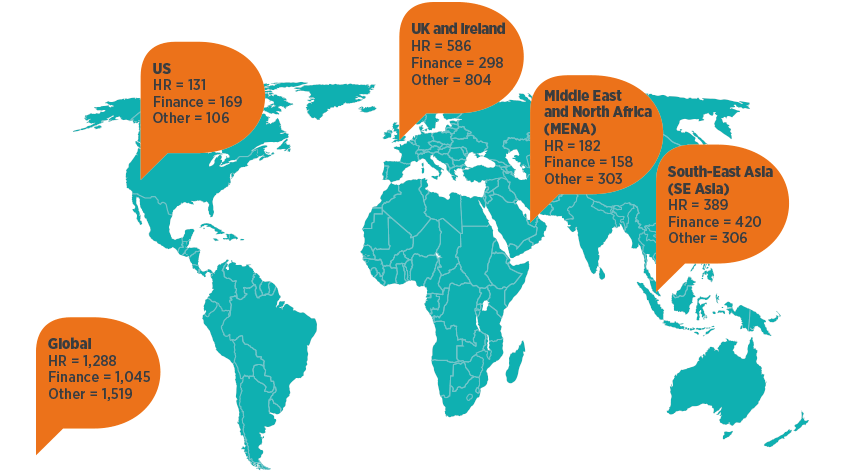People analytics: International perspectives on people data
Find out how people data is used to drive business performance across MENA, SE Asia, US and UK and Ireland

Find out how people data is used to drive business performance across MENA, SE Asia, US and UK and Ireland

People analytics is rising up the agenda for organisations globally. With technology providing businesses with more and more ways to collect people data, using this information to gain workforce insight, drive business performance and enhance employee experience is expected to grow.
Building on our survey People analytics: Driving business performance with people data, these focus reports provide an international perspective on how organisations use people analytics to understand people data. We asked 3,852 business professionals from the UK and Ireland, US, Middle East and North Africa (MENA) and South-East Asia their views on the impact of people analytics, the confidence and capability of the people professional in conducting analytics, and how people data is used to understand risk and tackle business challenges.

This global survey finds that HR professionals across the world using people data to tackle significant challenges, with three-quarters (75%) tackling workforce performance and productivity issues using people data. But, the survey also reveals that how and when organisations use people data differs across region.
Learn about how business professionals in the US use data to manage risk and enable data protection

Find out how people professionals in South-East Asia use people analytics and people data to automate and prepare for the future world of work.

Find out how business professionals in the Middle-East and North Africa feel people analytics adds value to their organisation

Explore the confidence and capability of UK and Ireland HR professionals when it comes to people analytics and people data

Report
A global survey of multiple professional perspectives on people data and people analytics
Guide
Learn the basics and improve your confidence and capability when using data
Tackling barriers to work today whilst creating inclusive workplaces of tomorrow.
Discover our practice guidance and recommendations to tackle bullying and harassment in the workplace.

Listen to episodes from our CIPD Ireland Podcast Series on a range of topical workplace, HR and L&D issues
Listen now
How can L&D teams can engage with new technologies like generative AI to impact performance?

Explore the CIPD’s point of view on automation, AI and technology, including recommendations for employers

Explore the CIPD’s point of view on people analytics, including recommendations for employers

A Northern Ireland summary of the CIPD Good Work Index 2024 survey report


A North of England summary of the CIPD Good Work Index 2024 survey report

The CIPD Good Work Index provides an annual snapshot of job quality in the UK, giving insight to drive improvement to working lives